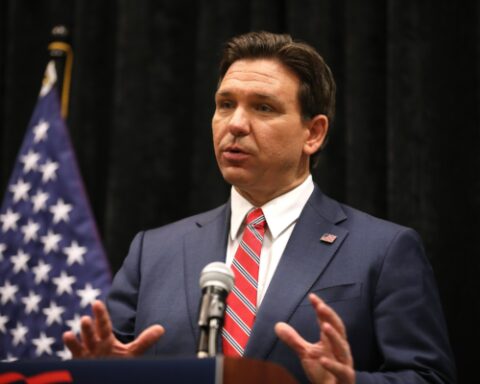The U.S. Supreme Court on Wednesday reportedly declined to intervene in a legal dispute over Florida’s recently enacted immigration law, leaving in place a lower court ruling that blocks key provisions of the measure.
In a brief, unsigned order, the justices denied an emergency request from Florida Attorney General James Uthmeier to stay a federal district court’s injunction while the state pursues an appeal.
The Court did not provide an explanation for its decision, a common practice in emergency matters.
At issue is a law championed by Republican Governor Ron DeSantis that makes it a crime for undocumented immigrants to enter Florida after having previously been removed from the country.
The law was challenged in federal court by the American Civil Liberties Union on behalf of two advocacy groups and two undocumented plaintiffs.
U.S. District Judge Kathleen Williams issued a preliminary injunction in April, halting enforcement of the provision. She later found Uthmeier in civil contempt for what she characterized as attempts to undermine the order.
In their arguments before the Court, the plaintiffs pointed to longstanding precedent, including the 2012 Supreme Court decision in Arizona v. United States, which held that immigration enforcement lies largely within federal jurisdiction.
The ACLU argued that Florida’s law encroached on that authority and risked unlawful detention without due process.
“This ruling affirms what the Constitution demands — that immigration enforcement is a federal matter,” said Bacardi Jackson, executive director of the ACLU of Florida. “No one should be stripped of their liberty without due process.”
A spokesperson for the Florida Attorney General’s office, Jae Williams, said the state remains committed to defending the law.
“Florida’s sovereignty cannot be left up to the whims of the next presidential administration,” he said, adding that the state’s appeal would proceed in the 11th U.S. Circuit Court of Appeals, which has scheduled arguments for October.
In filings, Uthmeier argued that the state law complements federal immigration statutes and aligns with Washington’s own enforcement priorities—a position supported in a brief submitted by Trump administration officials.
The Supreme Court’s refusal to step in marks a setback for Florida as it seeks to assert a more active role in immigration enforcement.
[READ MORE: DeSantis Advises Musk on How Best to Create Political Change]








